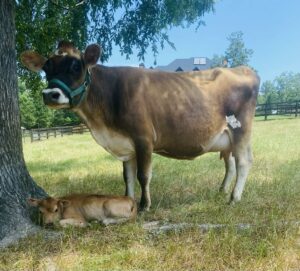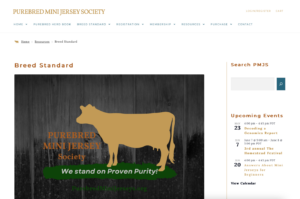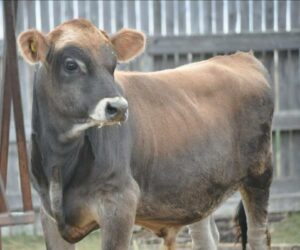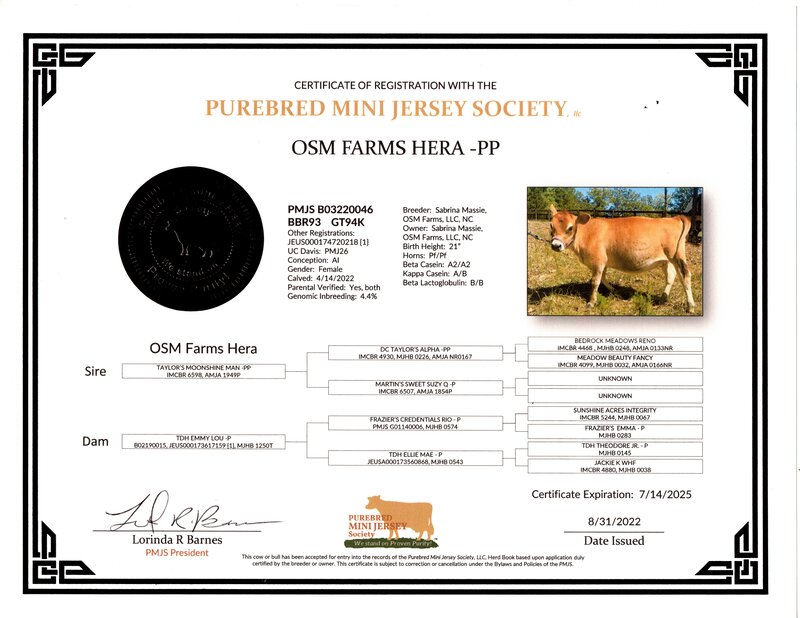
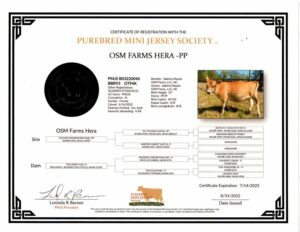
Have you been trying to understand the process of registering with PMJS? It’s true, it’s unlike what you may be familiar with. We have a Breed Standard and there are tests, such as Breed Based Representation (BBR), required to prove DNA in common with Jerseys, rule out the Bulldog/Chondro/BD1 genetic defect, and verify the pedigree by matching DNA to sire and dam. The requirements for registration are easy to find on the PMJS website.
The Flow Chart and Testing Handout can be helpful in understanding what’s needed:
THIS MAY LOOK OVERWHELMING BUT WE’RE ALWAYS HERE TO HELP YOU THROUGH.
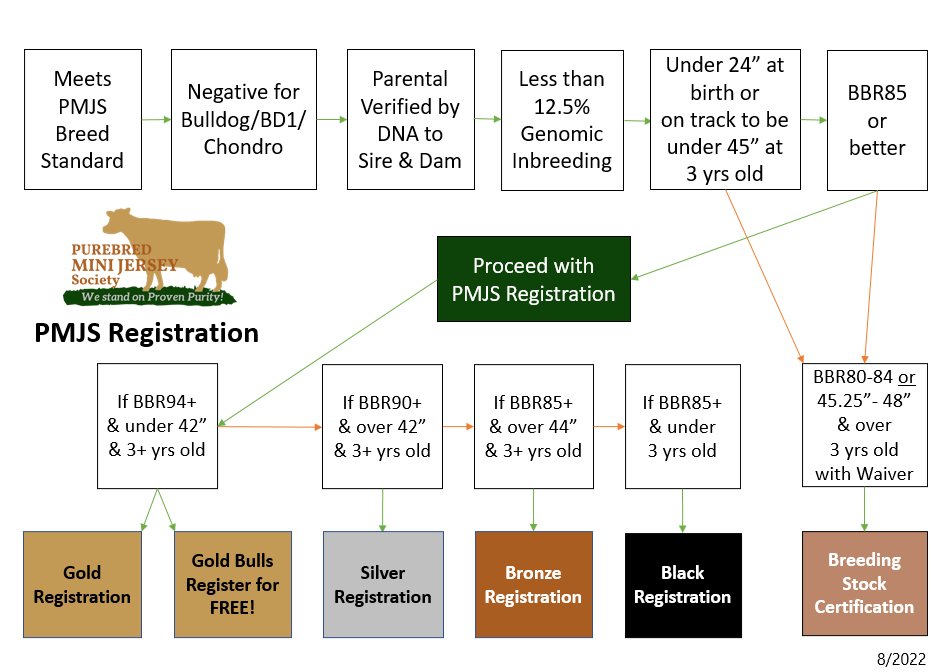
Requirements
In the above Flow Chart, the steps are as follows;
- Does your animal meet the Breed Standard?
- Are they carriers of BD1 Chondro from Dexter Cattle?
Purebred Mini Jerseys LOOK like Jerseys but in a proportionately smaller stature. They have the same characteristics and traits as their larger counterparts. Testing for BD1/Bulldog Dwarfism inherited from Dexter cattle needs to be done on your animal unless it can be proven both sire and dam are negative for Chondro. We know most AI bulls are tested and negative for the defect. So, you can either test the sire and dam or the animal you’re submitting for registration, their offspring.
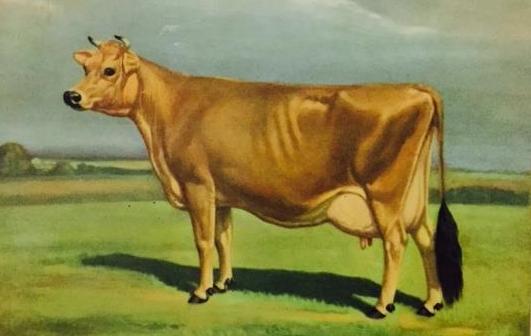
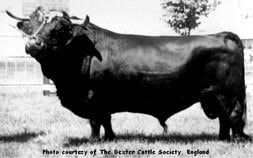
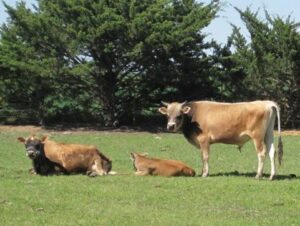
Verify parentage with the Genetic Marker Report for cattle born after 1/1/2020. To match the DNA of your cattle to their sire and dam they’ll need to have a Genetic Market Report to have their DNA on file with either AJCA or UC Davis – VGL. At UC Davis-VGL, you’ll need the parent’s number starting with PMJ, NC…) if they’re on file and were tested there previously.
If the parent has been genomically tested through AJCA, they will automatically parental verify when you order genomic testing for your cattle. Then, you can verify your animal to their parents and prove the pedigree is accurate. If one or both parents are deceased and not on file, contact us at Admin@PurebredMiniJerseys.com to look into the possibility of the PMJS Board of Directors voting on your registration application.
- Do they meet the height requirements?
Was your calf 24” or less at the top of the hip at birth? Or, are they now on track to be less than 45” by 3 yrs old? Are your cattle over 3 years old and at or below 45″ at the top of the hip?
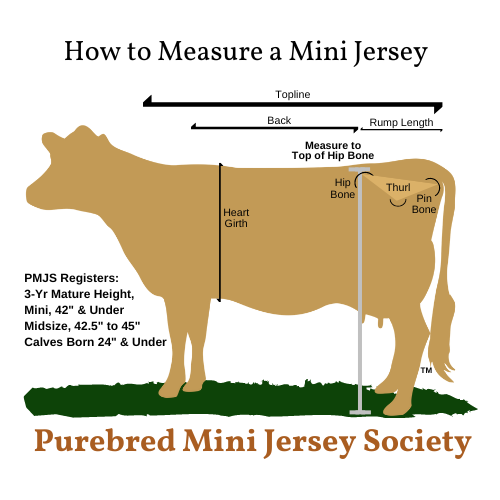
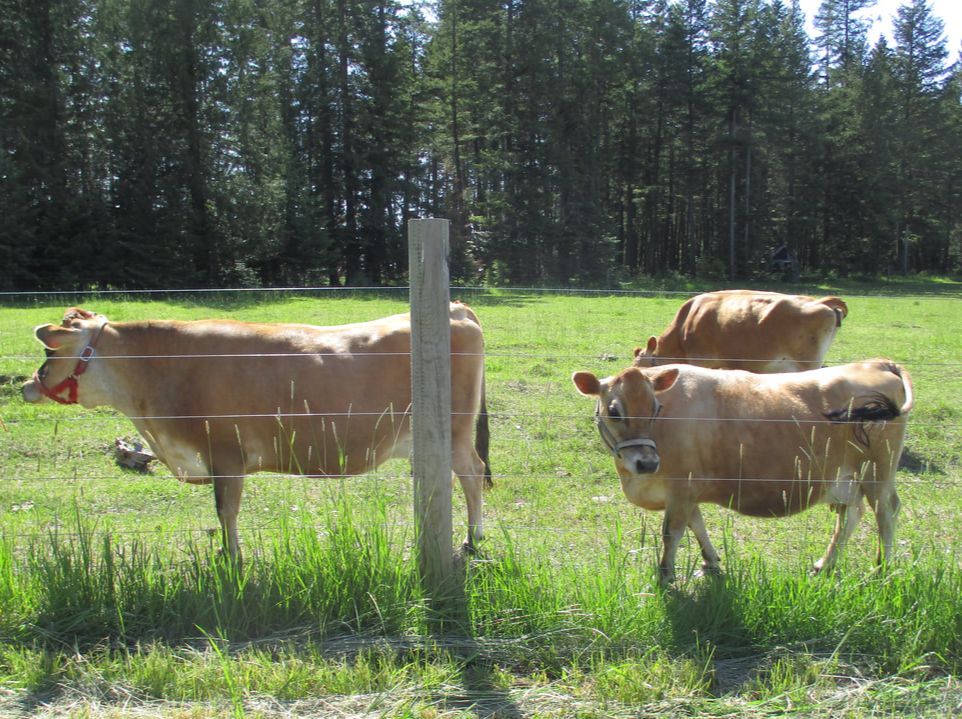
Optional Testing
- Milk Proteins; A2 genotyping beta-casein, kappa-casein, and beta-lactoglobulin
- Polled or Horned
While at UC Davis-VGL, you may want to test for A2, Beta Lactoglobulin, Kappa Casein milk proteins, and Polled. These aren’t required but can add value to your livestock.
Required BBR & Inbreeding Testing
If you feel your Mini Jersey cattle meet all the requirements so far, you can begin the process of getting the BBR and Genomic Inbreeding testing through the American Jersey Cattle Association (AJCA). The Genomic Evaluation Report includes the BBR and inbreeding scores needed for PMJS registration. They’re located in the top right box on the report, as seen below.
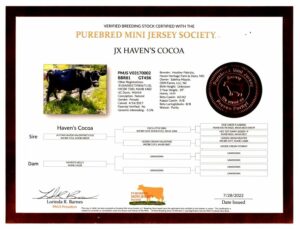
BBR compares your animal with a database of Jerseys known to be pure from around the world to confirm they share DNA in common. PMJS requires a BBR score of at least 85 to be registered. If your female cattle fall short, BBR80-84, you can apply for Verified Breeding Stock certification and receive a Rose Gold Certificate with a purity waiver, if they meet all other registration requirements. Waivers are not offered for bulls.
Our breeding population is very small. Mini Jerseys cost as much as $8,000, or more. Would anyone admit when line-breeding crosses the line? We’ve all heard it said, it’s line-breeding when it works and inbreeding when it doesn’t. You can utilize a free pedigree tool from Kintracks.com to calculate inbreeding prior to breeding or ordering the Genomic Evaluation Report. PMJS requires a Genomic Inbreeding score at or below 12.5% and would like to see it below 6.25% most of the time. The Genomic Inbreeding score is a direct measure of homozygosity (or genes in common) based on the DNA observed in the genotype. Values may be positive indicating a degree of inbreeding or negative indicating heterosis. The zero point is the average relationship to the Jersey population as it existed in 1960.
To better understand why it’s necessary to go through AJCA to obtain a BBR test score and how PMJS fits into the picture, you’ll want to read the Blog post that answers all the relevant questions.
Ordering Genomic Evaluation Testing
- Get a free account number by calling AJCA at 1 (614) 861-3636. If you already have an AJCA registered Jersey, you’ll use your owner number from your animal’s AJCA certificate.
- Then, you’ll create a login using your new account number at https://infojersey.usjersey.com/.
- Record your cattle, oldest to youngest, with AJCA either over the phone for $7 each or online at InfoJersey.com for $5. You’ll register your cattle there by following the tabs: SERVICES > REGISTRATION > NEW REGISTRATION. If there is an AJCA-registered parent, use that animal’s registration where appropriate. AJCA doesn’t recognize unregistered cattle that aren’t in their system. If this is the case, you’ll be required to use the codes for “Unknown Jersey sire”, JEUSA00099PJS0104, and “Unknown Jersey dam”, JEUSA00099PJD1002. (Of note, you can only claim Polled if one of the parents is registered as Polled. You can add this later.) When completed, they will issue an animal ID in AJCA for your animal. That number is used to order genomic testing.
- Order Genomic testing with BBR using the cattle’s new registration number that starts with “JEUSA” while logged in at InfoJersey.com. In the menu go to the tabs; SERVICES > GENOMICS > ORDER TEST KITS. Enter the newly issued animal ID number into the box on the left. Choose the LD 100K test for $47.
- Optional add-on testing; BVD-PI for $6, Beta-Casein A1/A2 for $4, Polled for $30, and JNS for $34.
- Complete the order by clicking the “Add to Cart” button and then the “Review Order” button.
- Pay for the order and print the forms. Collect a clean sample of 30+ tail hairs with the root bulb attached. Tape the hairs to the form, sign it, and send it to the lab.
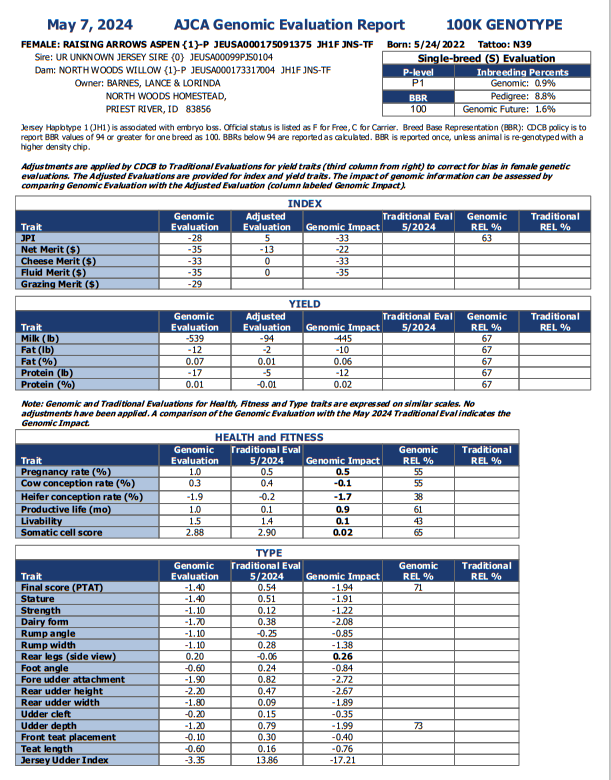
Be patient. Results are only issued on the first Tuesday of every month and takes about 30 days for the preliminary report. The BBR won’t come out until the official genomics. The official results are made public the month following your preliminary report, on the first Tuesday with the exception of August. In August, the results take a week longer.
This panel of testing is very slow but has loads of information to help you in understanding the traits your cattle carry. Once you have this, you can make choices for breeding to improve where you see weaknesses.
Only the Best Mini Jerseys
Then, with all this documentation in hand, you can apply for PMJS registration. The process gets easier once you’ve done it. If they’re under 3 years old they’re issued a Black Certificate. Once they turn 3, with a third-party height verification, we’ll update the registration to a complimentary permanent Gold, Silver, or Bronze certificate. PMJS registration really means something special and your cattle will soon be counted among them.
PMJS HOLDS THE HIGHEST STANDARDS, ONLY REGISTERING DNA PROVEN MINIATURE JERSEYS.
Sincerely,
Lorinda Barnes
PMJS President
